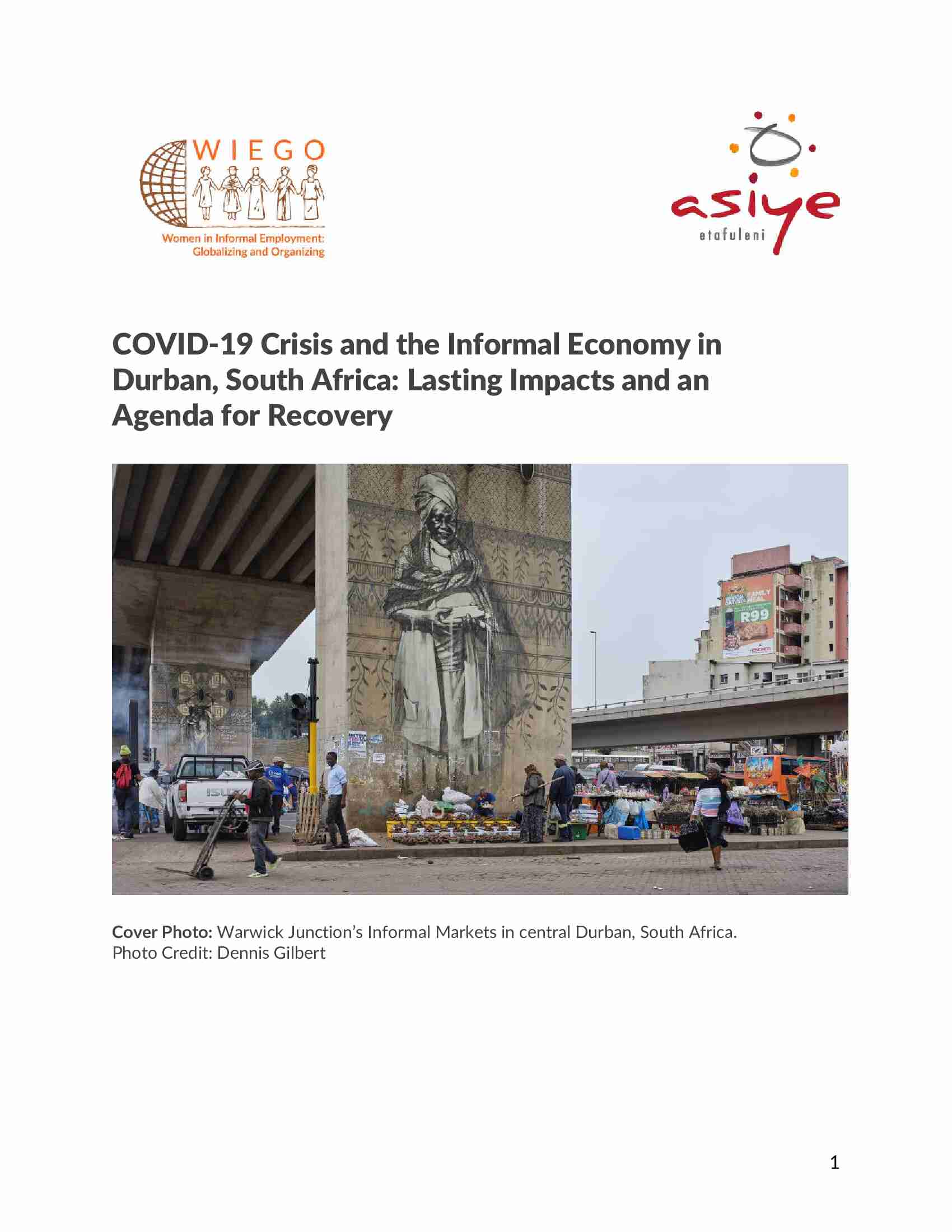COVID-19 Crisis and the Informal Economy in Durban, South Africa: Lasting Impacts and an Agenda for Recovery
This report presents the Durban, South Africa, findings from Round 2 of the WIEGO-led COVID-19 Crisis and the Informal Economy study that was conducted mid-2021 to assess how specific groups of informal workers and their households were experiencing COVID-19 resurgences and ongoing economic strains, and to what extent (if any) they had recovered. South Africa has a relatively small informal economy in comparison to the rest of sub-Saharan Africa.
Key Findings
- Economic recovery for informal workers in Durban has been slow, and in some respects conditions have worsened. In July/August 2021, fewer workers (79%) reported being able to work in the last month than in mid-2020, when 85% reported working in the last month. The vast majority of workers (94%) reported that their household incomes were less than pre-COVID household incomes.
- The major driving forces behind this very weak recovery were identified as market and supply chain disruptions, with many market traders and street vendors reporting a noticeable reduction in demand, a lack of capital to re-start businesses, and ongoing harassment and punitive behaviour against workers operating in public space from local government.
- Levels of food insecurity are down from the extremely high levels reported in mid-2020 (80%), but are still high, with almost 60% of workers reporting incidents of adult hunger in their households.
- More workers (61%) reported being able to access cash relief through the social protection system than in mid-2020 (47%), and the municipal moratorium on rental fees until December 2022 has been welcomed.
- Access to business relief has been almost non-existent, with only 3% of the sample reporting access to government loans.
View list of all: City/Country Level Reports

